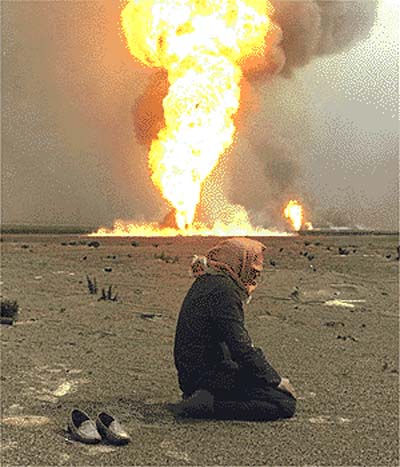Is the Military doing enough?

During my grandfathers and uncles tour of duty I believe the ship rides back home helped to alleviate some of their stress. The month long voyages home helped to slowly reintroduce them back into a society were they are not constantly in a fight or flight mode. Today’s military personnel are in war zone one minute then the next on a flight route back to the States all within 24hours.
I have genuine concern for the mental health of all actively serving military personnel. I am not quite sure how the military approaches mental health to my understanding it is on a volunteer basis. (If anyone knows differently please let me know). I personally believe that they need at least 3 months of mental health counseling after serving in an active war zone. My brother has been on leave for 18 days his wife just arrived last night and I believe they are both suffering from Post Traumatic Stress Disorder (PTSD). We are urging them both to seek the aid of mental health services. In the meantime as the old folks say we can only keep them lifted up before God.


Today’s military personnel are in war zone one minute then the next on a flight route back to the States all within 24hours.
That's not quite accurate. The trip itself is short, but the processing to get back takes a while. The troops are counseled on how to handle things, assigned buddies and told to talk to them if they start feeling anything that seems wrong, and given classes on PTSD. They are also screened and watched by people tasked with identifying who seems to be showing more than usual symptoms.
I wish the program was better, but there is a program. PTSD is a tough subject -- it is real, but it is rarely as bad as the people who promote it make it to be. Most vets recover substantially after a few months; almost all after a couple of years. A few live with it for a long time (in my experience because it aggravates underlying psychoses) and a (thankfully small) few crash and burn in a major way before they can recover.
Don't let them spend extended periods of time (like, more than a week) alone, and make sure that you are there when they want to talk, and not badgering when they don't. A lot of it is simply time and readjustment. And make sure they keep in touch with their units.
If they want professional help, get them to go to a regular service psychiatrist, but not to do anything like the VA group therapy things. Those are full of frauds (people who never even served, much less have PTSD) and malingerers who have made a lifestyle of being sick. The guys in their unit and their family are who they need.
Hey Phelps thanks for the info. I know for sure my brother was diagnosed with a Mild case of PTSD without spilling all his biz I think he needs more help than he is getting. I will keep in mind what you have shared and pass this information on to my mom.
As recently as last year, according to a Pentagon study, the prevailing mentality at U.S. bases was to deny PTSD's existence and even punish service members who sought help.
The attitude was reminiscent of World War II, when Gen. George S. Patton slapped soldiers seeking help for "combat fatigue."
Troops say they fear losing promotions or security clearances if they mention PTSD. Many have suffered in silence, often with such tragic consequences as suicide, homicide or fits of violent rage.
Attempted suicides among veterans now run about 1,000 a month, a grim statistic the Veterans Administration tried to keep secret until recently.
Studies indicate that a quarter to 38 percent of the 1.6 million who have served in Iraq and Afghanistan suffer serious mental health problems, but fewer than half are willing to seek help.
It's a disgrace to make these men and women suffer in silence.
There are 23.6 million veterans in the US.
The male suicide rate is 17.8 per 100K.
That means we would expect 4200 vets to commit suicide every year, if they did so at the same rate as the general male population.
Instead, it is only about 1000.
That is what I meant when I said that it is rarely as bad as the people who promote it make it out to be.
Our veterans are the best of America. Even with the hardships they endure, they tend to do better than the general population. That doesn't mean that they don't deserve even more help in return for what they have done -- but don't buy into the fearmongering (which generally comes from leftists organizations seeking to hurt recruitment.)
As for the mental health numbers, NAMI says that 1 in 4 Americans will have a serious mental health condition every year. That only puts the increase on vets (who are in a truly stressful situation) to only 13%. Less than 1/3 of the general populations seeks treatment for it's mental illnesses -- considerably less than the troops.
Don't believe the hype. It's serious, but it's not a disaster.
WOW..I can't imagine what they are going through out there.. the things they have done.. or have seen! I'll keep them in my prayers love!
Go B.
Post a Comment